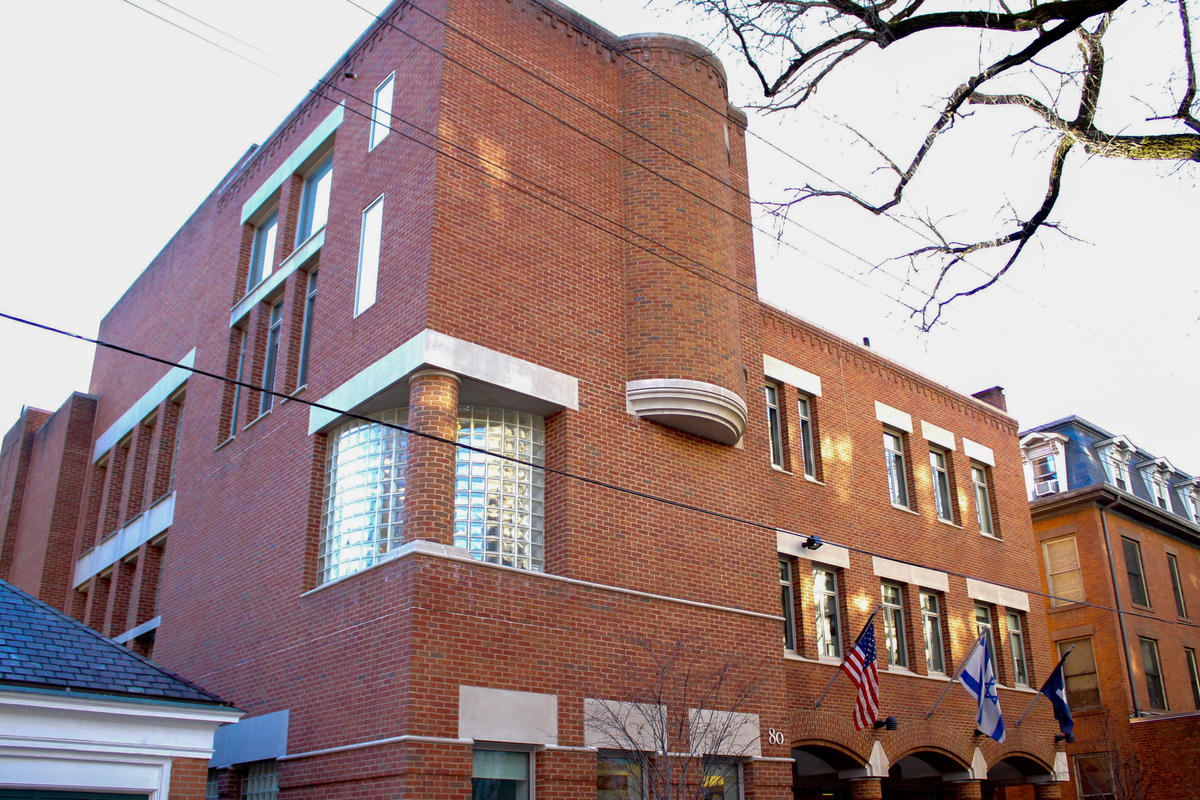Yale’s Jewish community to observe Yom Kippur at renovated Slifka Center
On Oct. 4 and 5, Jewish students, faculty and staff will gather at the recently reopened Slifka Center to celebrate Yom Kippur.

Skakel McCooey
The Slifka Center, which reopened this fall after two years of renovations, hopes to bring Yale’s Jewish community together for Yom Kippur.
The holiest day of the Hebrew calendar, Yom Kippur begins the night of Oct. 4 and will conclude Oct. 5 at sundown. Services are planned for Tuesday evening and throughout the day on Wednesday for each denomination, culminating in an evening meeting at Slifka to break the traditional holiday fast and engage in an hour of communal study.
“Over the course of the day, we face the inconvenient, uncomfortable truths — that we are fleeting creatures, that we fail at least as often as we succeed, and that we need so much help and forgiveness,” Jewish Chaplain Rabbi Jason Rubenstein wrote in an email to the News. “And we emerge, both as individuals and as a community, cleansed and united and inspired to embark on another year together, with open hearts and deep commitments to one another and our shared values.”
In the Jewish faith, Yom Kippur is the day of atonement. The mood of the holiday is equally celebratory and introspective as congregants reflect, pray for forgiveness and look forward to the coming year. The day and the proceeding evening are devoted to praying and paying reverence as a community.
For many Jewish students, the holiday means that they will not attend classes tomorrow, instead spending the day in prayer.
While the festivities center around the Jewish community, the events are open to all who wish to participate.
“[The] Slifka Center seeks to provide many different opportunities for students to engage in this austere yet celebratory moment,” Executive Director of the Slifka Center for Jewish Life at Yale Uri Cohen wrote to the News. “All are welcome to join us for this day’s observance, as well as for all the other opportunities to explore Jewish ideas, traditions, and conversations we offer throughout the year.”
Those who are interested in learning more about the holiday are encouraged to contact the Slifka Center.
The Jewish New Year, Rosh Hashanah, precedes Yom Kippur by ten days, and the harvest festival of Sukkot follows five days afterwards.
This year’s celebrations have been particularly busy with the alignment of the Gregorian calendar falling later than usual, meaning the holiday prep overlaps with the traditional midterm exam season.
However, despite their inordinately busy schedules, Slifka student leaders remain enthusiastic about the holiday and have been contributing to the preparation.
“Reflecting on such a solemn day as Yom Kippur being a ‘celebration’ or ‘holiday’ as our tradition describes it, I am grateful to feel closer to that [feeling of celebration] being my actual experience here, observing in the company of friends,” Slifka Co-President Maayan Schoen ’23 wrote in an email to the News. “My most fervent hope is to carry with me the friends and enriching conversations from across denominations of Judaism that have added so much color and depth to my practices.”
This year’s Yom Kippur is Tishrei 10, 5783 in the Jewish calendar.







